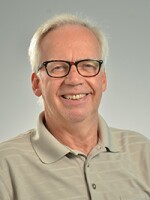Kansas City native Tom Watson is the captain of the U.S. Ryder Cup team that will be competing against the European golf team this weekend in Scotland. It’s his second go-round as the US captain, though times have changed since Watson last served as captain in 1993.
Ryder Cup competition was once regarded as friendly matches, but in the last two decades it has become more raucous. Every golf major like the Masters features the best from around the world competing as individuals. But the Ryder Cup takes on a team concept. It started when Samuel Ryder, a wealthy Englishman, promoted the idea of friendly biennial competition between the Brits and the Americans.
In 1927, the Americans won the first match. But with little fanfare compared to Babe Ruth who hit 60 homers for the New York Yankees that year. Tom Watson says it’s different now.
“It’s truly an event that is equal to any major championship,” says Watson.
Opposing the Americans are not just the Brits any more. It has been expanded to include all Europeans on their 12-man squad. Although many of the Europeans routinely compete against the American on the PGA Tour, the Ryder Cup competition divides the U.S. and Europe by more than an oceanic line.
John Garrity, a Kansas City-based golf writer and contributor to Sports Illustrated, covered the 1991 Ryder Cup at Kiawah Island in South Carolina. He felt uncomfortable with the tone of the event that year.
“Militarism even got into it,” said Garrity. “On the American side, we were equating victory in the Ryder Cup with victory in the Gulf war at that time, which was a little awkward because the people we were playing were our allies in the Gulf war.”
Garrity recalled excessive militarism displayed during the opening ceremony.
“All the guys marching with guns in the opening ceremony, with the plane flyovers and all like that, the jets and everything, seemed a little inappropriate,” he says.
Tom Watson prefers not to go that far. But since he was named captain after the 2012 Ryder Cup, he has taken his role seriously.
“It’s personal because the Europeans have beaten the tattoo on us in seven out of the last nine years and I’m getting pretty tired of that,” says Watson.
The two times the US won in the last nine years was on American soil. No U.S. team has won overseas since the ’93 team that Watson captained.
This year’s US team has three newcomers, and Watson says they need to adjust to crowd conduct unbecoming of a golf event.
"In the Ryder Cup, you hear cheers when people miss putts,” says Watson. “You don’t hear cheers at the Masters when Bubba (Watson) misses a putt. They go, ‘uhhh,’ instead of a ‘Heyyyy’ when he misses a putt. Players have to understand that.”
Bubba Watson, no relation, is playing in his third Ryder Cup. The PGA of America turned to Tom Watson, the oldest captain in Ryder Cup history, for his experience to lead a U.S. team that is regarded as the underdog.
With the prospect of entering a raucous environment, Watson recalls what basketball coach Roy Williams told him before the ’93 Ryder Cup.
“He said, ‘Okay, I want to you to do two things. I want you to make the crowd go silent. At the end of the game, I want you to watch the crowd leave early.’” says Watson.
If Watson sees that, he’ll captain a winner.



